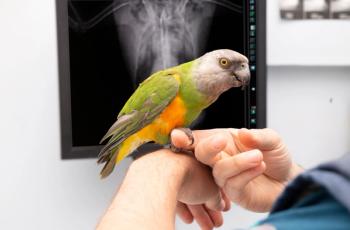
Social Behavior Differences in Neutered and Intact Male Dogs
European researchers examined the social behaviors of neutered versus intact dogs. Here’s what they found.
Social behaviors of neutered male dogs differ in some ways from those of intact male dogs, according to a study published in
The researchers, who are from Germany and Switzerland, suggest that veterinarians discuss alternatives to neutering with owners. In the United States, a number of organizations (including the American Veterinary Medical Association, American Society for the Prevention of Cruelty to Animals, Society for Theriogenology, and American College of Theriogenologists) support the voluntary neutering of dogs to reduce the number of unwanted dogs in US shelters.
The investigators conducted the study in three parts: (1) video analysis of 17 neutered and 16 intact male dogs interacting with each other in groups, (2) questionnaires completed by owners of 133 male dogs, and (3) information collected from the records of 54 male dogs in a behavior consultancy program.
For the video analyses, the researchers observed male dogs placed into 6 groups of 4 to 10 dogs each. Groups consisted of both neutered and intact dogs of various breeds, with ages ranging from 8 months to 10 years. Some dogs were already familiar with each other from previous interactions at a dog school. According to the authors, differences in the frequency of behaviors such as sniffing another dog’s perianal region and resting the chin on another dog signified that neutered dogs were less confident and more anxious than intact dogs.
For the second part of the study, the authors analyzed surveys based on a 2011 Hungarian study of trainability and boldness in various dog breeds. Of the 133 surveys available, 29 were from owners of dogs included in the video analyses. Owner scores for “boldness” and “sociability to dogs” were higher in intact dogs than in neutered dogs. Owners scored neutered dogs as being more trainable than intact dogs.
The information gathered for the third part of the study included owners’ reasons for seeking behavior advice and descriptions of their dogs’ behavior. More owners of neutered dogs than intact dogs sought behavioral consultation. According to owners’ assessments, neutered dogs were more likely than intact dogs to exhibit fearful behavior and aggression toward other dogs.
The authors acknowledge limitations of the study: dogs grouped together for video analysis were of widely differing ages, and female dogs were not included. They caution dog owners against neutering male dogs with the intent to change unwanted behavior because the procedure may not produce the desired effect. They suggest further studies of social behavior in intact and neutered dogs.
Dr. Laurie Anne Walden received her doctorate in veterinary medicine from North Carolina State University. After an internship in small animal medicine and surgery at Auburn University, she returned to North Carolina, where she has been in small animal primary care practice for over 20 years. Dr. Walden is also a board-certified editor in the life sciences and owner of Walden Medical Writing, LLC. She works as a full-time freelance medical writer and editor and continues to see patients a few days each month.
Newsletter
From exam room tips to practice management insights, get trusted veterinary news delivered straight to your inbox—subscribe to dvm360.




